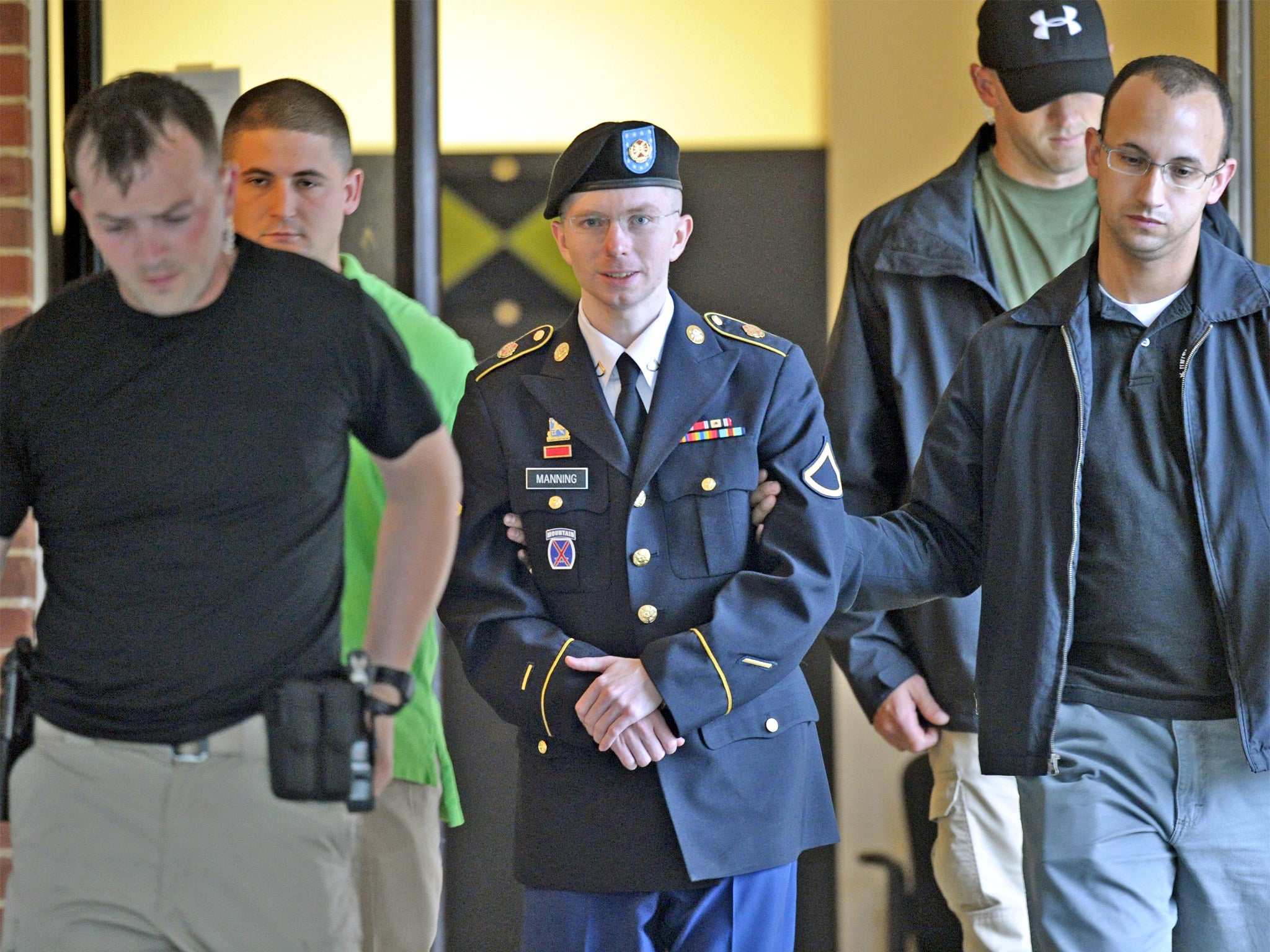Bradley Manning court-martial hears 'evidence of online chats' with Wikileaks founder Julian Assange

A computer crimes investigator says he saw evidence on a laptop of chats between former military intelligence analyst Bradley Manning and Julian Assange, the founder of the anti-secrecy web site WikiLeaks.
On the sixth day of Manning's court martial prosecutors have begun to present examples where, they say, classified information transmitted by Pvt Manning to Mr Assange’s site threatened to inflict quantifiable damage to US national security interests across a range of different categories.
The defence has argued that the 25-year-old former soldier had no intention of hurting the US when he stole the classified materials, including cables, prisoner assessments and video clips, and shared them with WikiLeaks and wanted only to spark a debate about America’s conduct in the Iraq and Afghan wars.
Mark Johnson, the forensic computer sleuth, noted that in communicating with WikiLeaks Pvt Manning had used the alias Nathanial Frank, the name of a historian who wrote a book critical of the US military’s now abandoned ‘don’t ask, don’t tell’ policy that obliged gays in the armed services to keep quiet about the sexual identities. The defence has also told the court that the defendant struggled to fit in as a gay soldier.
Any testimony describing direct communications between Manning with Assange will go to the core of the prosecution’s assertion that the defendant set out to compromise national security. It will also be of interest to the US government if it returns to the issue possibly of charging Mr Assange, a step it has not taken.
On the stand, Mr Johnson said he found a trail of chats between Manning and an account that prosecutors believe was used by Mr Assange. Those chats were about government business, he said, adding: “Specifically, they were mentioning Iceland, Iraq, Afghanistan and Gitmo (Guantanamo Bay.)”.They discussed WikiLeaks too.
The prosecution this week has asserted that the torrent of secret material sent by Manning to WikiLeaks included such things as code names and sensitive information on US military tactics and strategy. It also included at least one enemy target, the court was told.
In a statement that was read to the court, retired Air Force Lt. Col. Martin Nehring, a classification expert, said his review of Afghanistan and Iraq battlefield reports leaked by Manning revealed techniques for dealing with improvised explosives, the name of an enemy target, the names of criminal suspects as well as troop movements.
Join our commenting forum
Join thought-provoking conversations, follow other Independent readers and see their replies
Comments
Bookmark popover
Removed from bookmarks